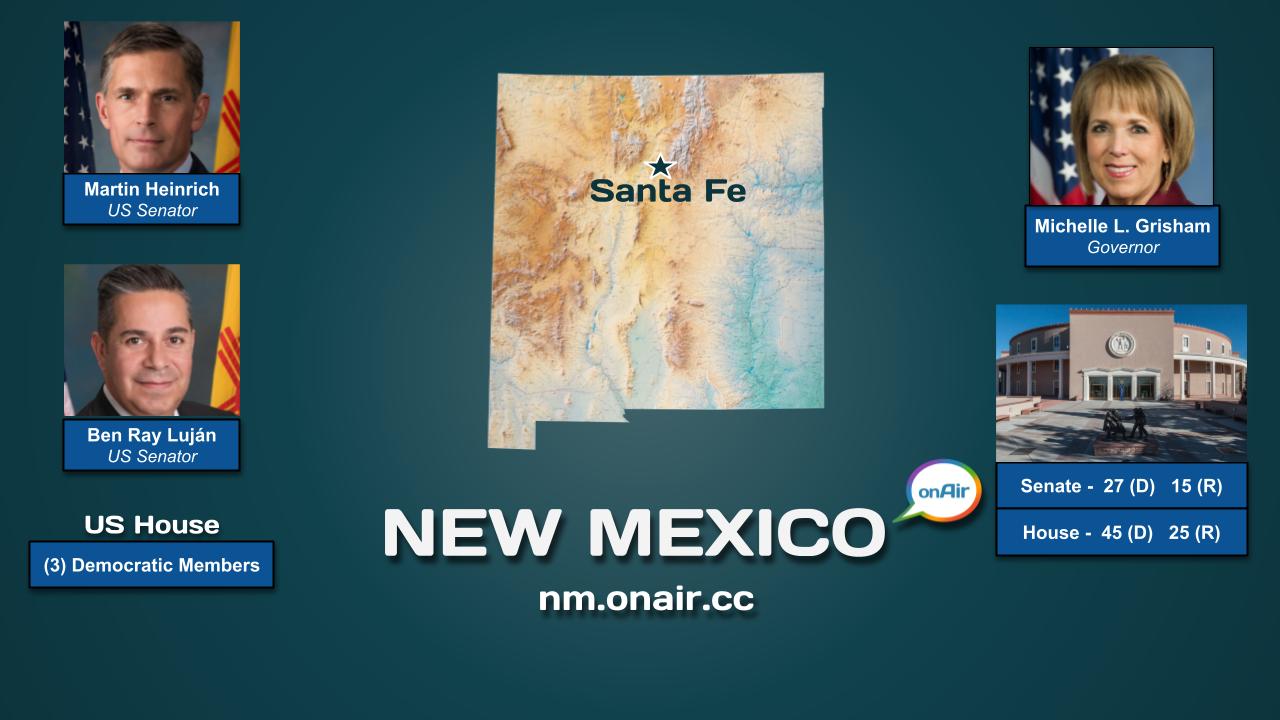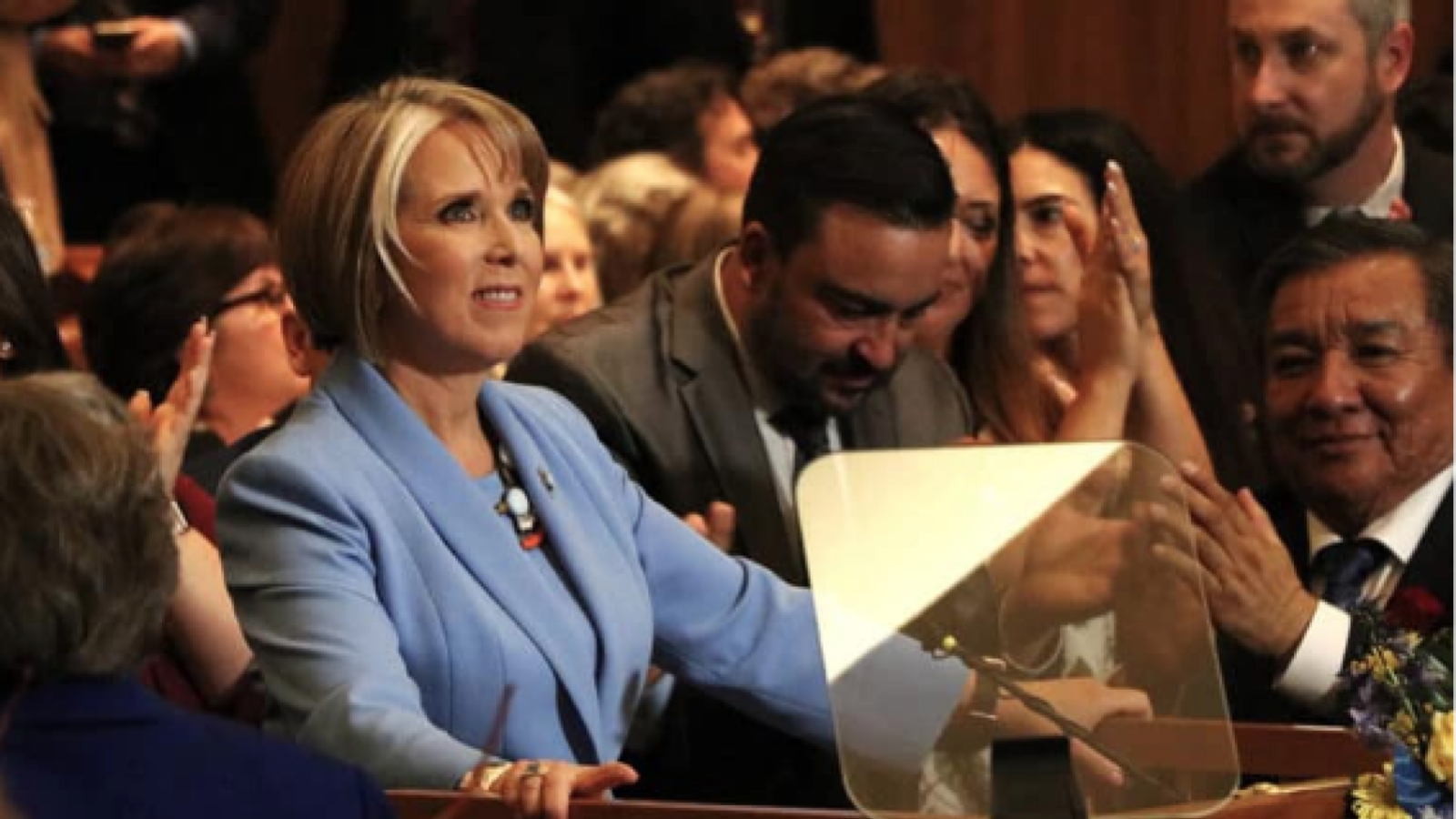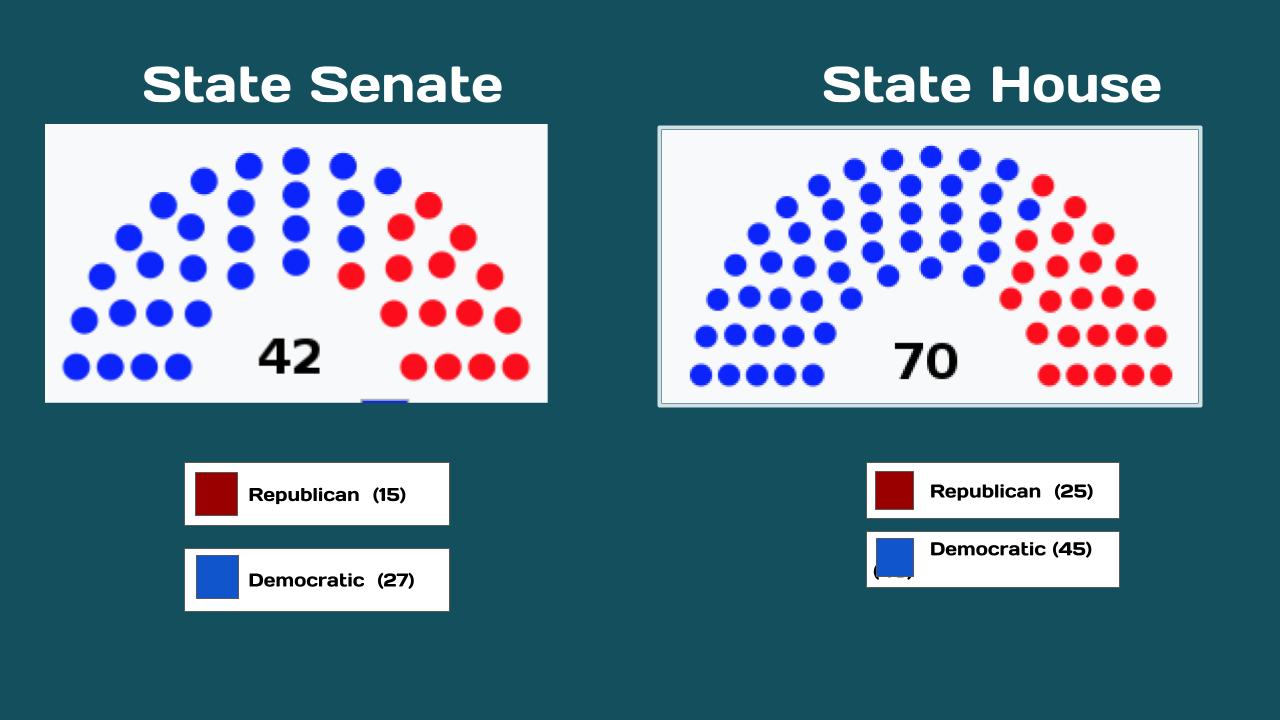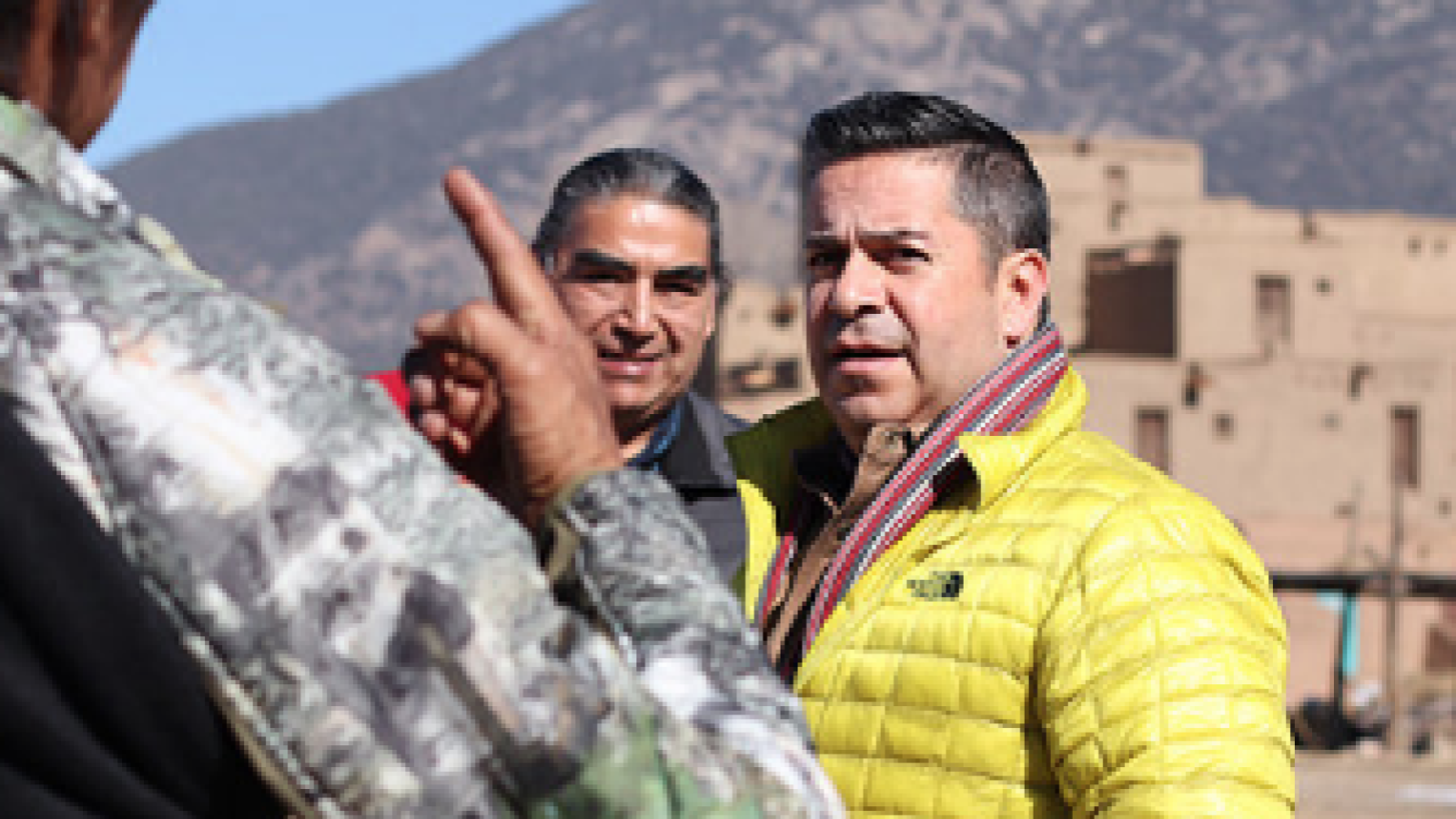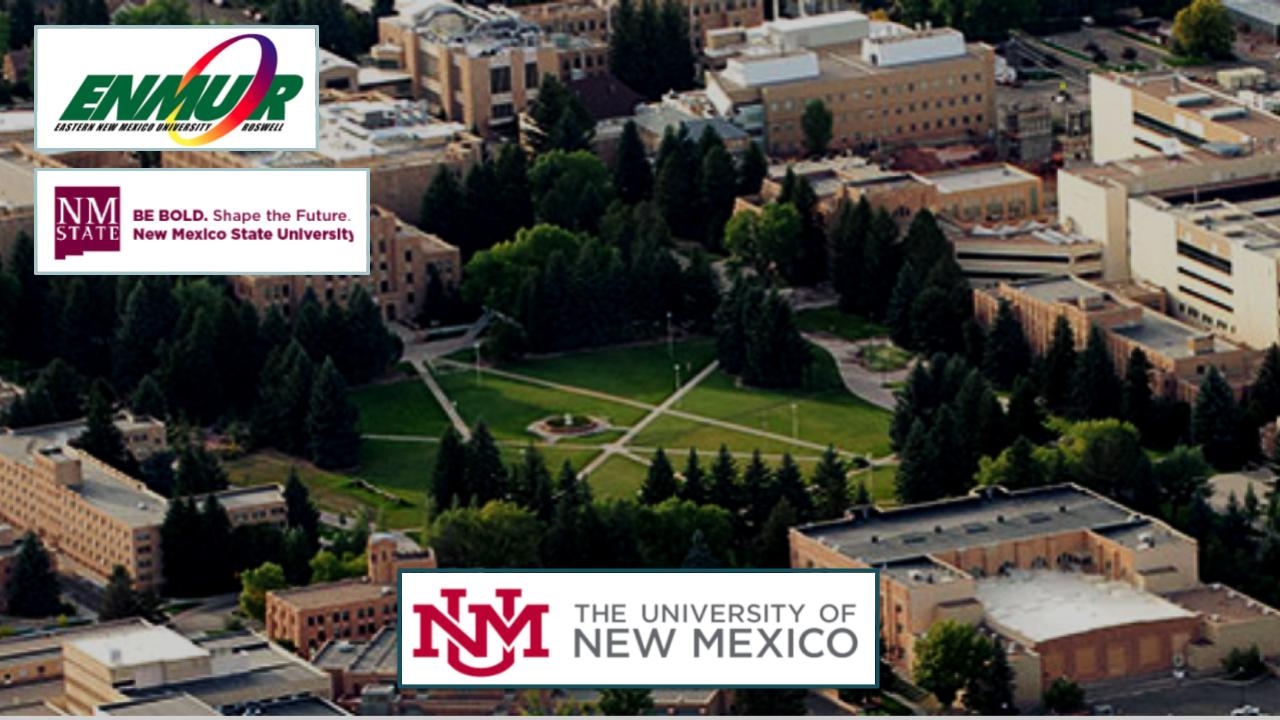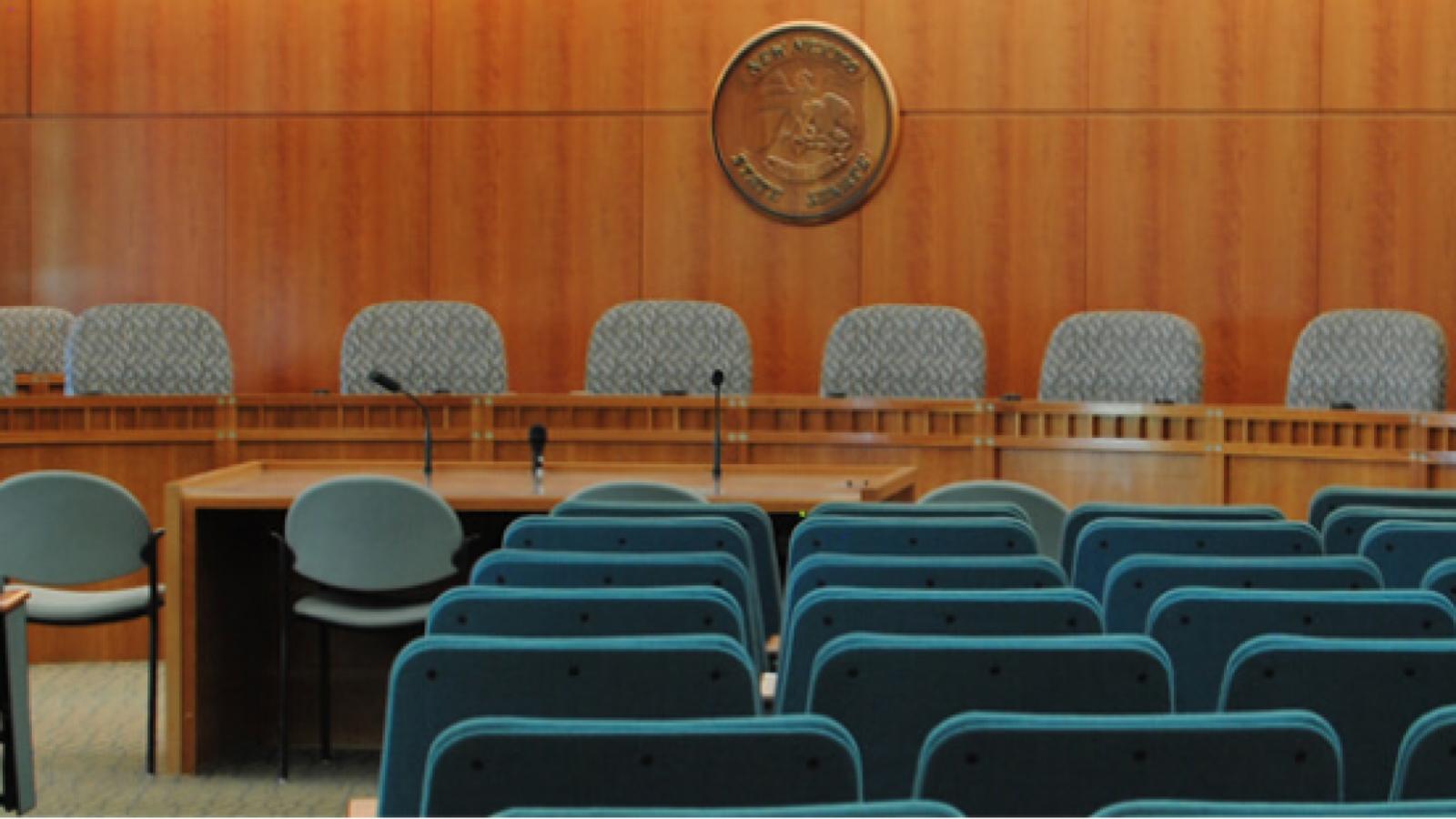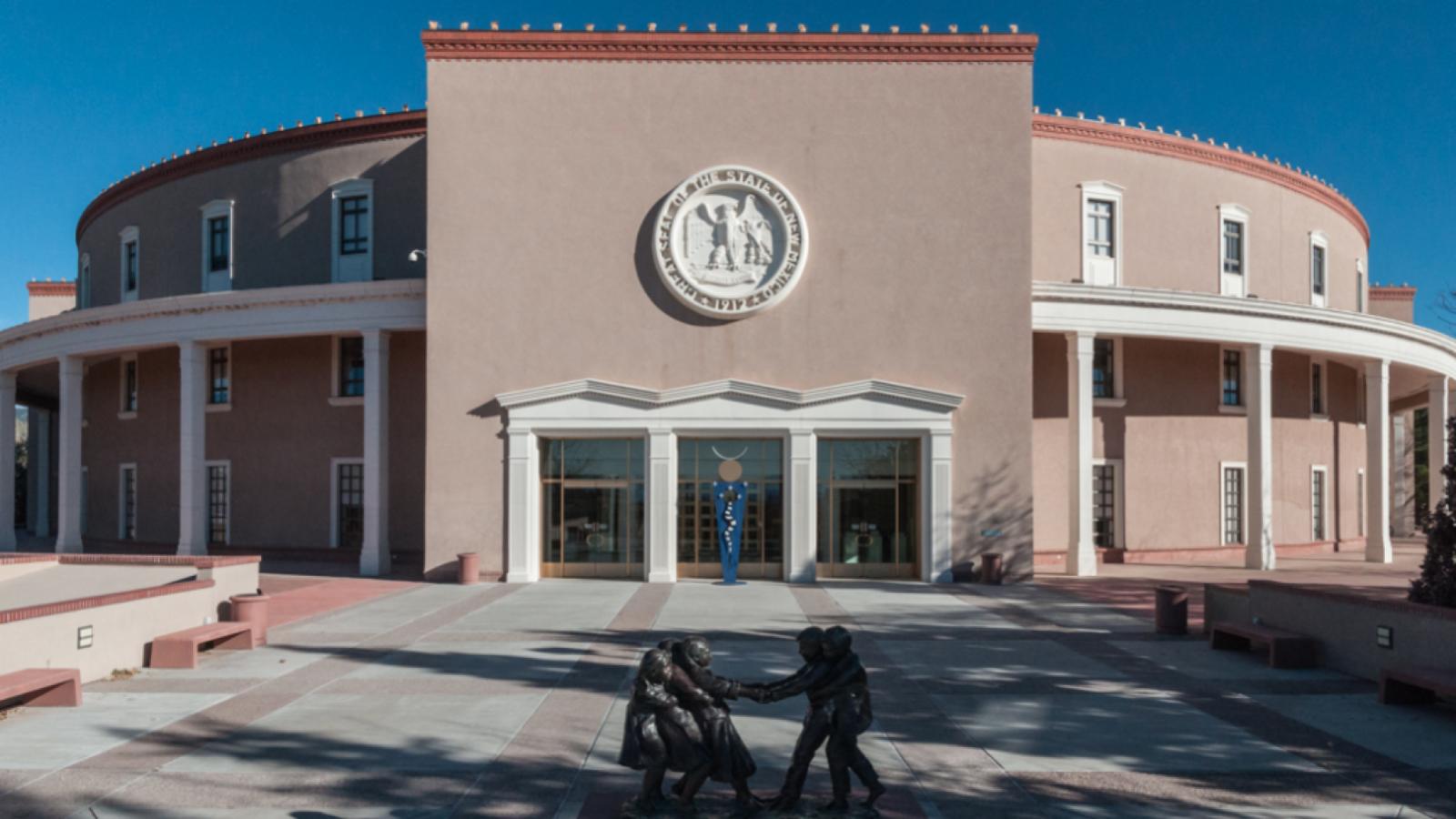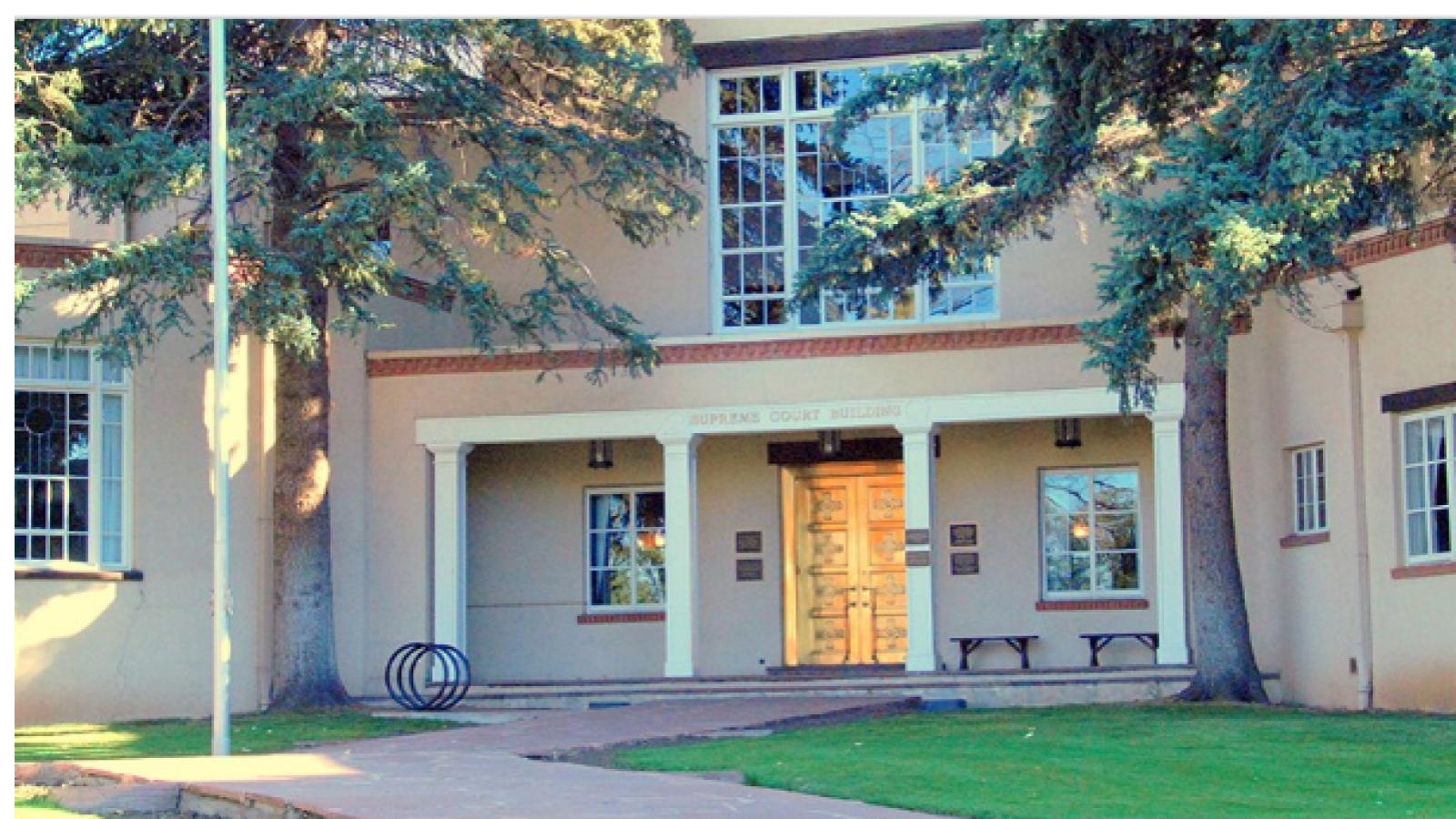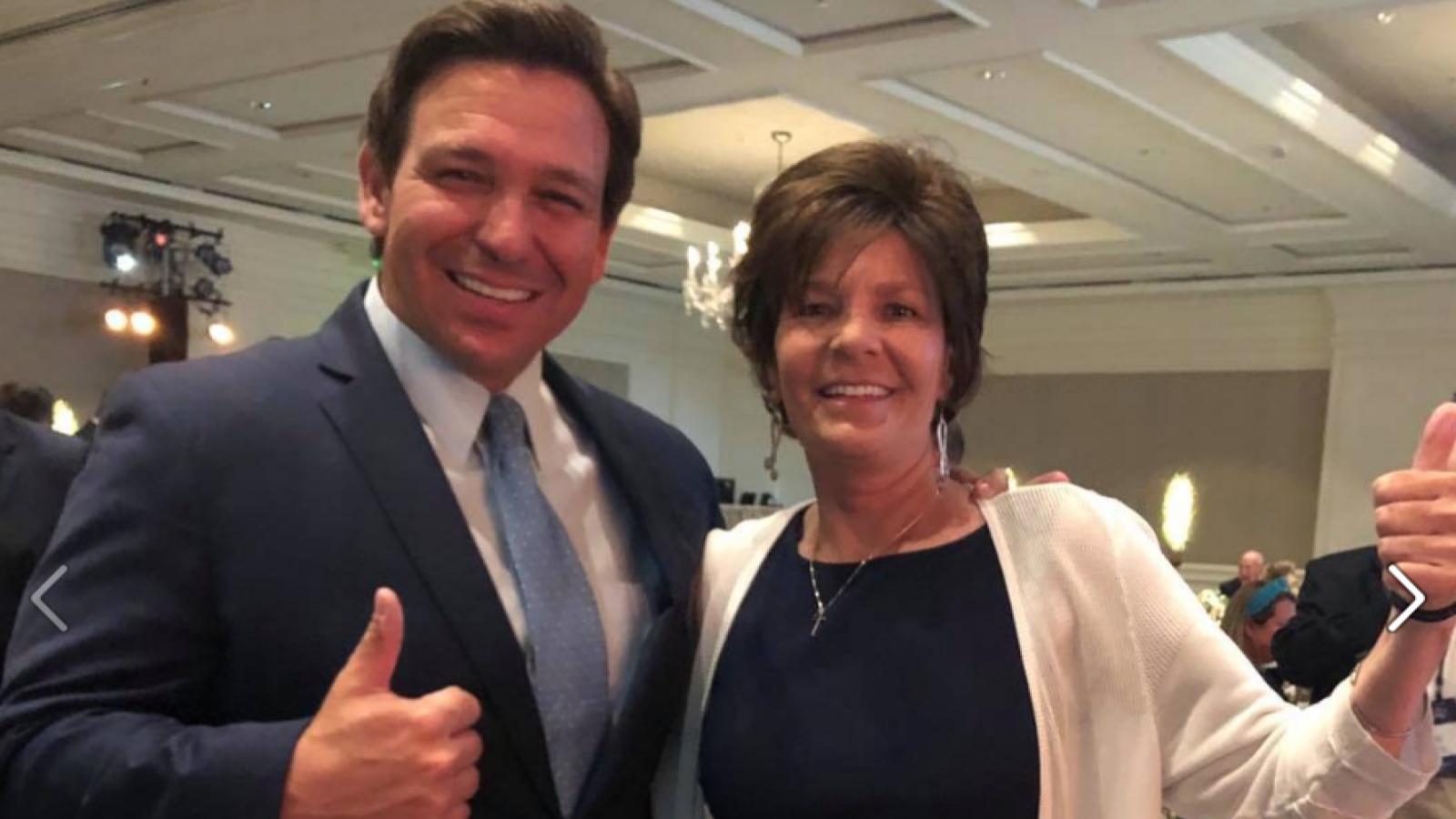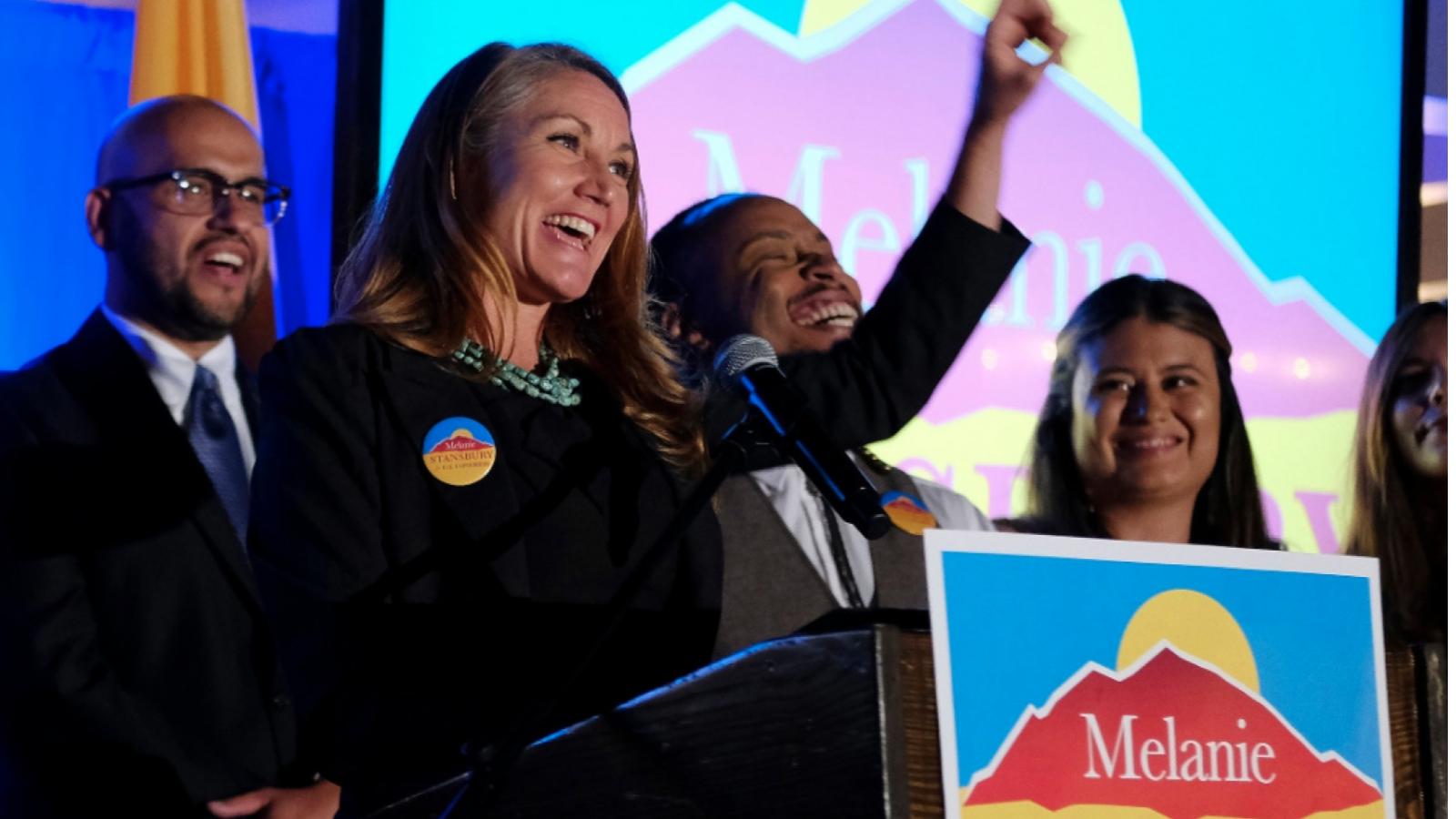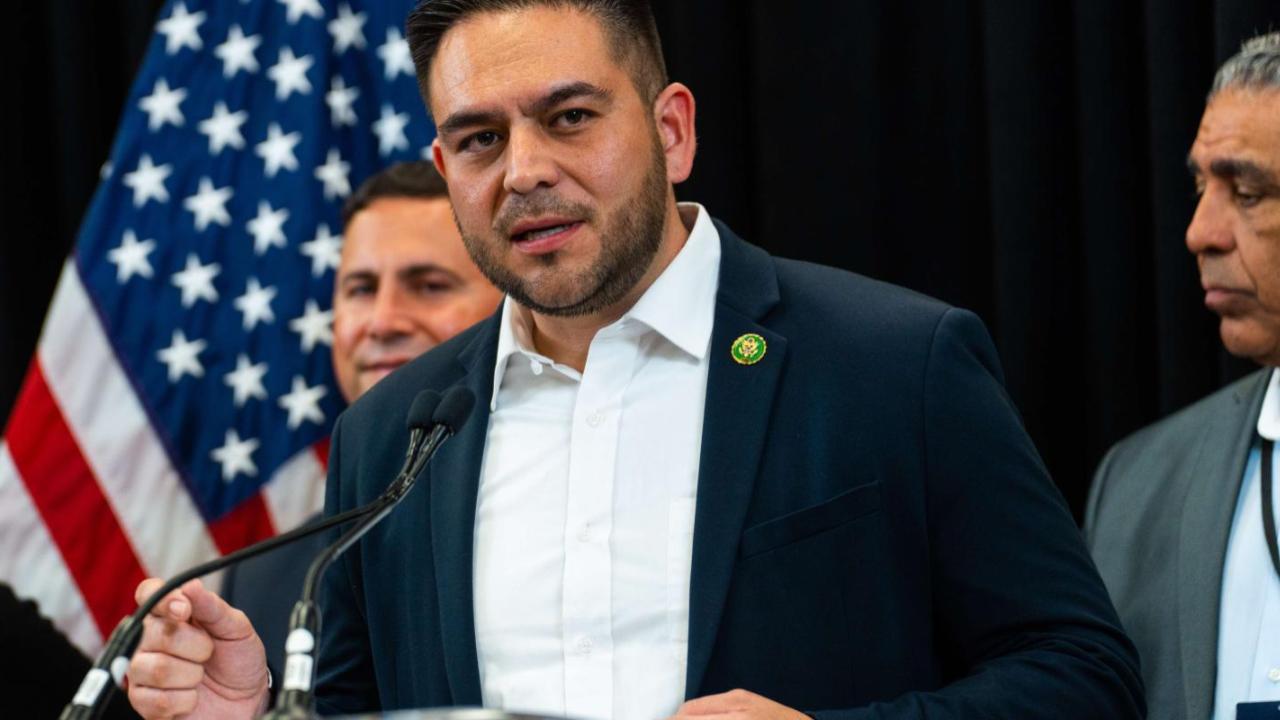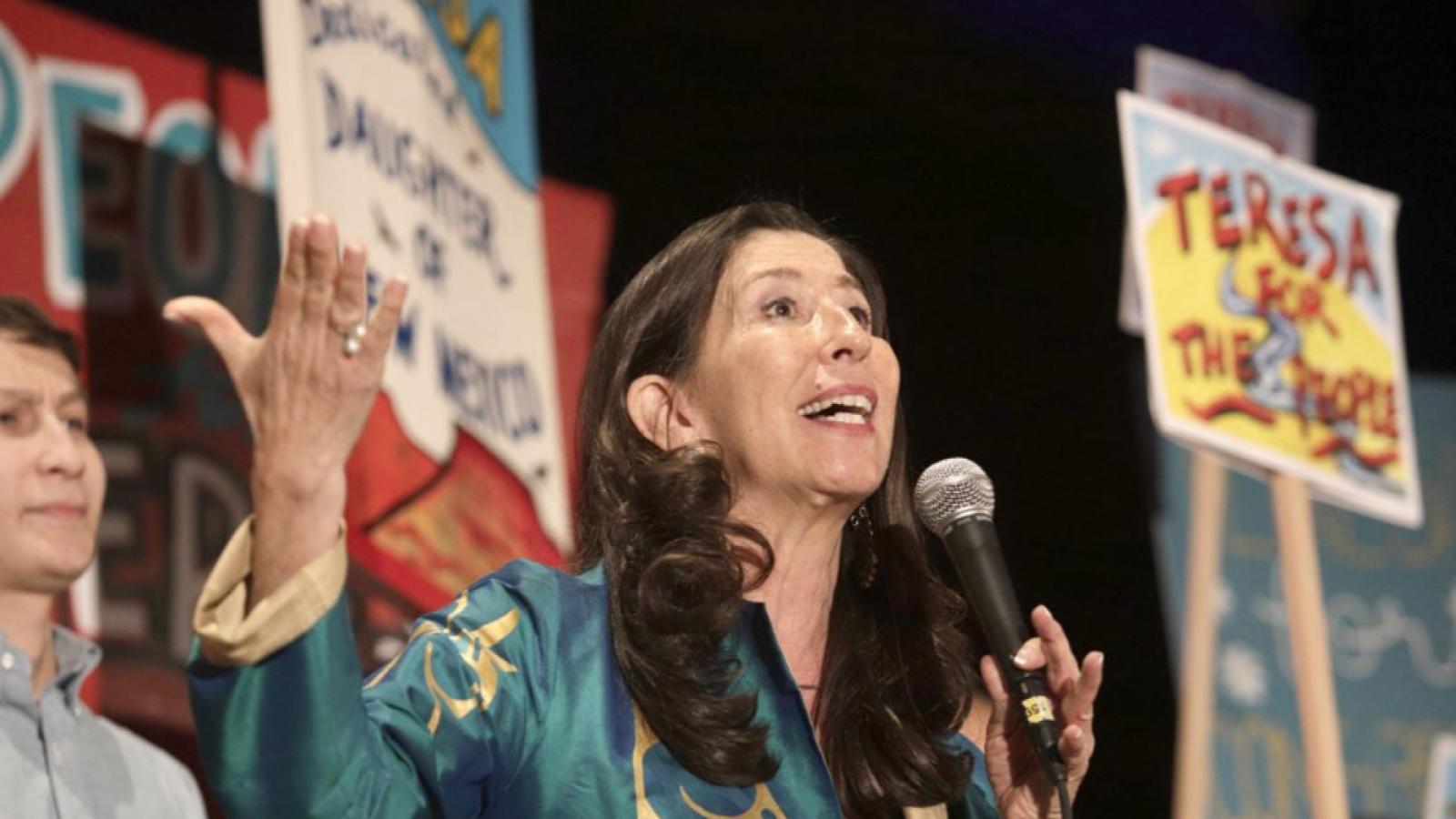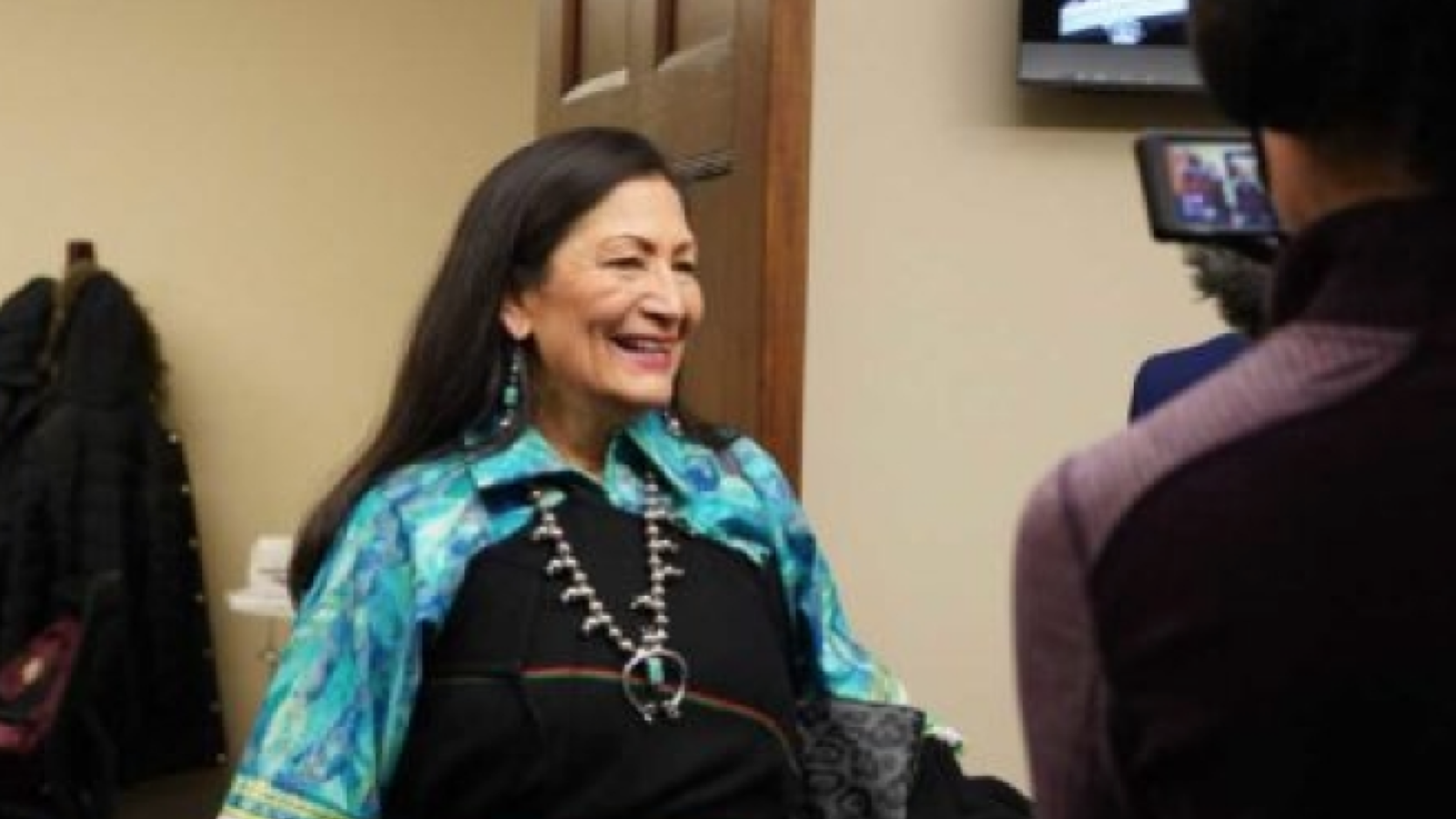Summary
New Mexico is located in the Western region of the USA with Santa Fe as its capital. Michelle Lujan Grisham (D) is Governor.
The New Mexico legislature has 42 Senate members and 70 House members.
OnAir Post: New Mexico onAir
News
The base content in each post in this New Mexico onAir Hub has been updated as of 12/20/23. In addition to the eight posts on the home page, in depth posts on each US House member and posts on New Mexico government and elections have been started. These posts have been shared with the US onAir Hub and will updated in the US onAir automatically when they are updated in this hub.
If your university or nonpartisan organization (such as a government focused research center, citizen engagement program or a League of Women Voters chapter) is interested in assisting the US onAir network to help curate new issue posts or other posts on this Hub and moderate the forums in each post, contact Ben Murphy at Ben.Murphy@onair.cc.
We are also supporting college students to start an onAir chapter on the their campus to coordinate the curation and moderation of posts especially on state and local representatives and government.
About
The New Mexico onAir Hub supports New Mexicans to become more informed about and engaged in local, state, and federal politics while facilitating more civil and positive discussions with their representatives, candidates, and fellow citizens.
- New Mexico onAir is one of 50 state governance and elections hubs that the US onAir Network is providing to help reinvigorate US democracy. This post has short summaries of current state and federal representatives with links to their complete Hub posts. Students curate post content from government, campaign, social media, and public websites. Key content on the New Mexico Hub is also replicated on the US onAir nations Hub at: us.onair.cc.
- New Mexico students will be forming onAir chapters in their colleges and universities to help curate Hub content. As more students participate and more onAir chapters are started, we will expand to include more state and local content as well as increase the number of aircasts – student-led, livestreamed, online discussions with candidates, representatives, and the public.
Find out more about Who Represents Me in New Mexico
Learn more about the US onAir Network
All hub content in onAir hubs is free to the public. Hub ontent is under the Creative Commons Attribution-NonCommercial license which permits content sharing and adaptation by nonprofit organizations as long as proper attribution is given to its author(s) and is used for non-commercial purposes. Content and moderation guidelines reinforce our commitment to fact-based, comprehensive content and civil and honest discourse.
To participate in aircast and post discussions, email usdemocracy@onair.cc and include your first name last name, and zipcode. Your real name and any other profile information will not be displayed unless you choose to do so. Your personal information is not shared with any other website or organization.
Hub membership will enable you to:
- Participate in issue and interview aircasts (student-led livestreamed discussions);
- Interact directly with post authors and curators giving them feedback, content suggestions, and asking questions;
- Ask questions, make suggestions, and give endorsement to representatives
Web Links
State Representatives
Governor Michelle Lujan Grisham
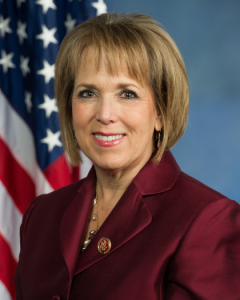 Current Position: Governor since 2019
Current Position: Governor since 2019
Affiliation: Democrat
Former Position: US Representative from 2012 – 2018
Lujan Grisham served as the state secretary of health from 2004 to 2007 and as a Bernalillo County commissioner from 2010 to 2012. Lujan Grisham is part of the prominent Lujan political family in New Mexico, many of whose members have served in elected and appointed positions in government.
Lujan Grisham served as director of the New Mexico Aging and Long-Term Services Department. In 2004, Lujan Grisham was named New Mexico Secretary of Health and she served in the position until 2007.
Quotes:
Our commitment to science-driven policies, our successful and efficient vaccine rollout effort, and our care for our fellow New Mexicans had real results – it saved lives. Thank you, New Mexico.
OnAir Post: Michelle Lujan Grisham – NM
US Representatives
Senator Martin Heinrich
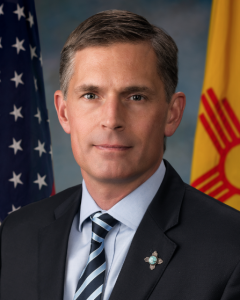 Current Position: US Senator since 2013
Current Position: US Senator since 2013
Affiliation: Democrat
Former Position: US Representative for NM-01 from 2009 – 2013
Other Positions: Vice Chair, Joint Economic Committee
After a brief stint doing mechanical drawings, Heinrich worked as an AmeriCorps fellow in New Mexico. From 1996 to 2001 Heinrich served as executive director of the Cottonwood Gulch Foundation, a New Mexico nonprofit organization dedicated to educating young people on natural science and the environment.
In 2002 he founded his own public affairs consulting firm. Martin Heinrich, in 2004 to 2008, served on the Albuquerque City Council, representing the 6th district. In February 2006 Governor Bill Richardson appointed Heinrich to be the state’s Natural Resources Trustee.
Quotes:
Our National Labs are driving the energy transition forward every single day.
OnAir Post: Martin Heinrich – NM
Senator Ben Ray Luján
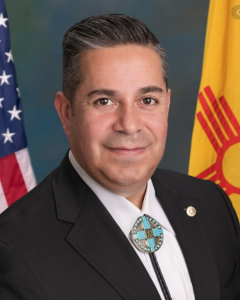 Current Position: US Senator since 2021
Current Position: US Senator since 2021
Affiliation: Democrat
Former Position: US Representative for NM-03 from 2009 – 2020
Other Positions: Chair, Subcommittee on Communications, Media, and Broadband – Committee on Commerce, Science and Transportation
Ben Ray Luján served as a member of the New Mexico Public Regulation Commission from 2005 to 2008, where he also served as chairman.
Luján was selected as chairman of the Democratic Congressional Campaign Committee (DCCC) in 2014 and led the Democrats to win a House majority in the 2018 elections. He was the first Hispanic to serve in this role. In his role as assistant House Democratic leader, Luján was the highest-ranking Latino in Congress.
Quotes:
A strong educator workforce will help students prepare for the future. I’m proud to join @TimKaine
and my colleagues in urging Senate Leadership to invest $9 billion in the educator workforce to ensure that we have a well-prepared educator workforce.
OnAir Post: Ben Ray Luján – NM
Melanie Stansbury NM-01
 Current Position: US Representative of NM-01 since 2021
Current Position: US Representative of NM-01 since 2021
Affiliation: Democrat
Former Position: State Delegate from 2019 – 2021
District: central area of New Mexico, including most of Bernalillo County, all of Torrance County, and parts of Sandoval, Santa Fe and Valencia counties. It includes almost three-fourths of Albuquerque.
Upcoming Election:
Stansbury began her career as an ecology instructor at the New Mexico Museum of Natural History and Science. As a White House Fellow, she worked as a policy advisor on the Council on Environmental Quality. She was a consultant at Sandia National Laboratories and later served as a program examiner in the Office of Management and Budget during the Obama administration. She worked on the staff of the United States Senate Committee on Energy and Natural Resources and as an aide to Senator Maria Cantwell.
Since 2017, she has worked as a consultant and senior advisor at the Utton Transboundary Resources Center of the University of New Mexico
OnAir Post: Melanie Stansbury NM-01
Gabe Vasquez NM-02
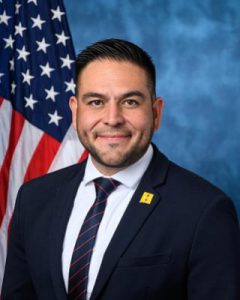 Current Position: US Representative of NM-01 since 2021
Current Position: US Representative of NM-01 since 2021
Affiliation: Democrat
Former Position: Member of the Las Cruces City Council from 2017 to 2021
District: southern half of New Mexico, including Las Cruces, and the southern fourth of Albuquerque.
Upcoming Election:
From 2008 to 2011, he was the business editor of the Las Cruces Bulletin. In 2011, he was the executive director of the Las Cruces Hispanic Chamber of Commerce. From 2013 to 2015, he served as a field representative for Senator Martin Heinrich.
In 2015 and 2016, Vasquez was the vice president of communications for First Focus, a Washington, D.C.-based advocacy organization. From 2016 to 2018, he was the director of community relations for the New Mexico Wildlife Federation. In 2018 and 2019, he was the deputy director of New Mexico’s chapter of the Wilderness Society. From 2019 to 2021, he worked as deputy director of the Western Conservation Foundation.
OnAir Post: Gabe Vasquez NM-02
Teresa Leger Fernandez NM-03
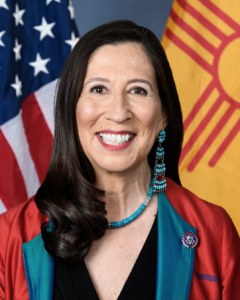 Current Position: US Representative of NM-03 since 2021
Current Position: US Representative of NM-03 since 2021
Affiliation: Democrat
District: northern half of New Mexico, including the state’s Capital, Santa Fe. The district has a significant Native American presence, encompassing most of the New Mexico portion of the Navajo Nation, situated in the northwest corner of the state, and most of the Puebloan peoples reservations.[
Upcoming Election:
After graduating from law school, Leger Fernandez returned to New Mexico to work as an attorney, specializing in community-building and tribal advocacy. She was a White House Fellow during the Clinton administration and later served on the Advisory Council on Historic Preservation during the Obama administration.
For 30 years, Leger Fernandez has operated Leger Law and Strategy, LLC in Santa Fe. The firm focuses on community development, tribal advocacy, civil rights, and social justice.[10] In 2017, she led a successful effort to implement ranked-choice voting in Santa Fe’s municipal elections.
Quotes:
Our educators are right! We must develop other reliable revenue streams to fund our public schools – but we don’t have to do it alone. I’m working to ensure that states that rely on oil & gas revenues can transition without leaving any community behind.
OnAir Post: Teresa Leger Fernandez NM-03
More Information
Wikipedia
Contents
The government of New Mexico is the governmental structure of the state of New Mexico as established by the Constitution of New Mexico. The executive is composed of the governor, several other statewide elected officials and the governor’s cabinet. The New Mexico Legislature consists of the House of Representatives and Senate. The judiciary is composed of the New Mexico Supreme Court and lower courts. There is also local government, consisting of county administrations, city governments, and special districts.[1]
Executive
The state elected officials are:[2]
The New Mexico Governor’s Cabinet includes:[3]

- Office of African American Affairs
- Department of Aging and Long-Term Services
- Department of Agriculture
- Department of Children, Youth, and Families
- Department of Corrections
- Department of Cultural Affairs
- Department of Economic Development
- Department of Energy, Minerals, and Natural Resources
- Office of the State Engineer
- Department of Environment
- Department of Finance and Administration
- Department of General Services
- Department of Health
- Department of Higher Education
- Department of Homeland Security and Emergency Management
- Department of Human Services
- Department of Indian Affairs
- Department of Information Technology
- Office of State Personnel
- Department of Public Education
- Department of Public Safety
- Department of Regulation and Licensing
- Department of Taxation and Revenue
- Department of Tourism
- Department of Transportation
- Department of Veteran Services
- Department of Worker’s Compensation
- Department of Workforce Solutions
Legislature

The New Mexico Legislature is a bicameral body made up of the 70-member New Mexico House of Representatives and the 42-member New Mexico Senate. The New Mexico Constitution limits the regular session to sixty calendar days, and every other year it is thirty days. The lieutenant governor presides over the Senate, while the speaker of the House is elected from that body in a closed door majority member caucus. Both have wide latitude in choosing committee membership in their respective houses and have a large impact on lawmaking in the state.
Judiciary
The New Mexico Supreme Court is the highest court. It is primarily an appellate court, only having original jurisdiction in a limited number of actions; criminal cases in which the death penalty or life imprisonment is sought, appeals from the New Mexico Public Regulation Commission, and cases involving the writ of habeas corpus are reviewed directly by the Supreme Court. The court’s five justices are chosen by statewide election, or appointed by the governor if to fill a seat that has become vacant mid-term.
The New Mexico Court of Appeals is the intermediate-level appellate court. The court has general appellate jurisdiction over the district courts and certain state agencies. Ten judges preside, sitting in panels of three.[4]

The New Mexico district courts are courts of general jurisdiction.[4] They hear cases involving: tort, contract, real property rights, estate; exclusive domestic relations, mental health, appeals for administrative agencies and lower courts, miscellaneous civil jurisdiction; misdemeanor; exclusive criminal appeals jurisdiction; and exclusive juvenile jurisdiction.[4] There are thirteen judicial districts.[4]
The New Mexico magistrate courts are courts of limited jurisdiction.[4] They hear cases involving: tort, contract, landlord/tenant rights ($0–10,000); felony preliminary hearings; and misdemeanor, DWI/DUI and other traffic violations.[4] There are fifty-four magistrate courts.[4]
The New Mexico probate courts are courts of limited jurisdiction and do not hold jury trials.[4] There is one for each of New Mexico’s thirty-three counties.[4]
The New Mexico municipal courts are courts of limited jurisdiction and do not hold jury trials.[4] They hear cases involving: petty misdemeanors, DWI/DUI, traffic violations and other municipal ordinance violations.[4]
The Bernalillo County Metropolitan Court is a court of limited jurisdiction of Bernalillo County.[4] It hears cases involving: tort, contract, landlord and tenant rights ($0–10,000); felony first appearances; misdemeanor, DWI/DUI, domestic violence, and other traffic violations.[4]
Local government
Local government in New Mexico consists of counties and municipalities. There are thirty-three counties, of which Bernalillo County, containing the state’s largest city Albuquerque, is the most populous. Counties are usually governed by an elected five-member county commission, sheriff, assessor, clerk and treasurer. A municipality may call itself a village, town, or city,[5] and there is no distinction in law and no correlation to any particular form (Mayor-Council, Commission-Manager, etc.). Municipal elections are non-partisan.[6] In addition, limited local authority can be vested in special districts and landowners’ associations.
References
- ^ “New Mexico Government”. www.newmexico.gov. Retrieved 1 January 2019.
- ^ “New Mexico > Government > Elected Officials”. www.newmexico.gov. Retrieved 1 January 2019.
- ^ Office of the Governor of New Mexico. “Cabinet Level Departments”. Retrieved 31 March 2014.
- ^ a b c d e f g h i j k l m New Mexico Administrative Office of the Courts. “About the Courts”. Retrieved 31 March 2014.
- ^ New Mexico Statutes § 3-1-3
- ^ New Mexico Statutes § 3-8-29C
External links

